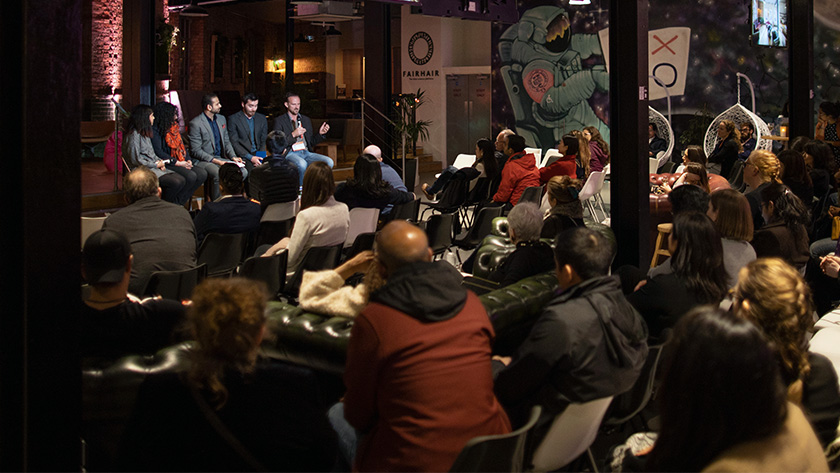The much anticipated Fail Faire at the Oxford Foundry during Skoll Week brought out stories of the biggest challenges faced by social entrepreneurs. Earlier in the week I was at dinner with a fellow delegate who was looking forward to hearing stories of failure. “These stories humanize us,” she told me. She had been to such an event in Mexico City where people from all walks of life summoned the courage to share deeply personal stories of epic failure. To her, this was what being human is all about—multidimensional, vulnerable, and imperfect. The Oxford Fail Faire was slightly more focused: bringing to light the oft untold narratives of an entrepreneur’s path. The success stories are the ones we so often hear.
This year’s Fail Faire started out with a mixer; the room buzzed as attendees shared stories of failure. Under the veil of Chatham House Rules—no attribution—attendees felt comfortable sharing deeply personal anecdotes with complete strangers. A panel of four entrepreneurs followed this intimate ice breaker.
Each of these four entrepreneurs cited personal struggles with deep systemic failures. For many, a failure in the system, or a failure in the team, or a failure to act lit a fire that propelled their future work in bold new directions. They began to think more critically about their work and question their role in the challenges they hoped to solve.
These stories were told in a room full of entrepreneurs, people who may too be in the midst of their own failure stories. The storytellers left the audience with two resounding pieces of advice:
We heard stories of organizational failure that for an outsider could seem like something completely out their control. Yet for these entrepreneurs, any failure in their organizations came with personal responsibility. They owned these mistakes, and that emboldened them to move forward.
Many echoed the importance of family and friends as anchors in the entrepreneurial journey. Whether they are there to listen, provide escape, or to hold up a mirror that might reveal any missteps or errors in judgment, a strong support system is key.
Many of these failures reflected structural injustices embedded in the communities in which these entrepreneurs worked. Their failures, while personal, also reflected the inequalities and imbalances in the system in which they worked. With many in the audience clamoring for failure stories not just from entrepreneurs, but also from funders and investors, it’s clear that a multitude of actors often play a role in systemic injustice. The Fail Faire illuminated just one part of the story.